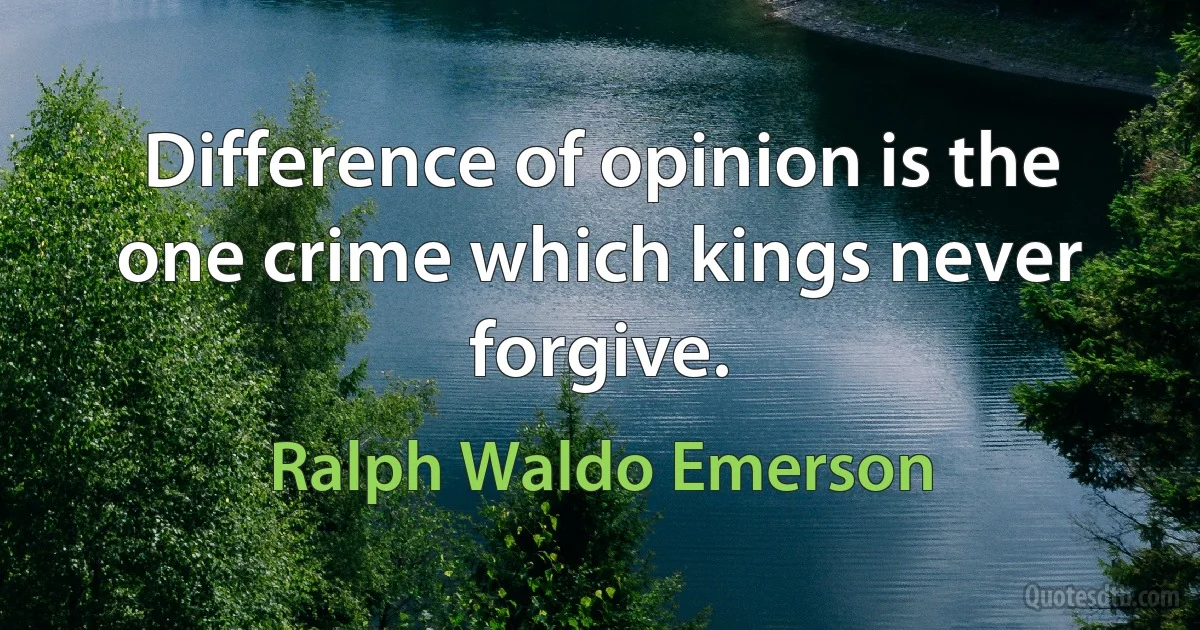Kings Quotes - page 21
Doth some one say that there be gods above? There are not; no, there are not. Let no fool, Led by the old false fable, thus deceive you. Look at the facts themselves, yielding my words, No undue credence: for I say that kings kill, rob, break oaths, lay cities waste by fraud, And doing thus are happier than those, Who live calm pious lives day after day. All divinity is built-up from our good and evil luck.

Euripides
I'm like the king of a rain-country, rich
but sterile, young but with an old wolf's itch,
one who escapes his tutor's monologues,
and kills the day in boredom with his dogs;
nothing cheers him, darts, tennis, falconry,
his people dying by the balcony;
the bawdry of the pet hermaphrodite
no longer gets him through a single night;
his bed of fleur-de-lys becomes a tomb;
even the ladies of the court, for whom
all kings are beautiful, cannot put on
shameful enough dresses for this skeleton;
the scholar who makes his gold cannot invent
washes to cleanse the poisoned element;
even in baths of blood, Rome's legacy,
our tyrants' solace in senility,
he cannot warm up his shot corpse, whose food
is syrup-green Lethean ooze, not blood.

Charles Baudelaire
Like gladiator games and pyramid building, opera has always been a gloriously money-losing proposition. It is the most extravagant of arts, requiring the constant support of kings, dictators, plutocrats, and town councils. Box-office success is no solution. San Francisco Opera loses money at every sold-out performance. Sane business practices simply don't suffice. Composer Richard Wagner's patron, King Ludwig II of Bavaria, was the ideal operatic angel - very rich and certifiably insane. Mel Brooks' shyster producer Max Bialystock need not have mounted Springtime for Hitler to score a surefire loss. Aida would have done just fine.

Dana Gioia
I fancy I hear them talking there
In an open boat, and the speech is fair.
And the boy is learning the ways of men
From the finest man in his youthful ken.
Kings, to the youngster, cannot compare
With the gentle father who's with him there.
And the greatest mind of the human race
Not for one minute could take his place.

Edgar Guest
Napoleon, far more Italian than French, Italian by race, by instinct, imagination, and souvenir, considers in his plan the future of Italy, and, on casting up the final accounts of his reign, we find that the net profit is for Italy and the net loss is for France. Since Theodoric and the Lombard kings, the Pope, in preserving his temporal sovereignty and spiritual omnipotence, has maintained the sub-divisions of Italy; let this obstacle be removed and Italy will once more become a nation. Napoleon prepares the way, and constitutes it beforehand by restoring the Pope to his primitive condition, by withdrawing from him his temporal sovereignty and limiting his spiritual omnipotence, by reducing him to the position of managing director of Catholic consciences and head minister of the principal cult authorized in the empire.

Napoleon Bonaparte
Some intellectuals' downplaying of objective reality and enduring criteria extends beyond social, scientific, or economic phenomena into art, music, and philosophy. The one over-riding consistency across all these disparate venues is the self-exaltation of the intellectuals. Unlike great cultural achievements of the past, such as magnificent cathedrals, which were intended to inspire kings and peasants alike, the hallmark of self-consciously "modern” art and music is its inaccessibility to the masses and often even its deliberate offensiveness to, or mockery of, the masses.
Just as a physical body can continue to live, despite containing a certain amount of microorganisms whose prevalence would destroy it, so a society can survive a certain amount of forces of disintegration within it. But that is very different from saying that there is no limit to the amount, audacity and ferocity of those disintegrative forces which a society can survive, without at least the will to resist.

Thomas Sowell
Why, how can you ask such a question? You are a republican."
A republican! Yes; but that word specifies nothing. Res publica; that is, the public thing. Now, whoever is interested in public affairs -- no matter under what form of government -- may call himself a republican. Even kings are republicans."
Well! You are a democrat?"
No."
What! "you would have a monarchy?"
No."
A Constitutionalist?"
God forbid."
Then you are an aristocrat?"
Not at all!"
You want a mixed form of government?"
Even less."
Then what are you?"
I am an anarchist."
Oh! I understand you; you speak satirically. This is a hit at the government."
By no means. I have just given you my serious and well-considered profession of faith. Although a firm friend of order, I am (in the full force of the term) an anarchist. Listen to me.

Pierre-Joseph Proudhon
Biographical history, as taught in our public schools, is still largely a history of boneheads; ridiculous kings and queens, paranoid political leaders, compulsive voyagers, ignorant general the flotsam and jetsam of historical currents. The men who radically altered history, the great scientists and mathematicians, are seldom mentioned, if at all.

Martin Gardner
The capitalist system has lifted mankind out of mass poverty. It is this system that in the last century, in the last generation, even in the last decade, has acceleratively been changing the face of the world, and has provided the masses of mankind with amenities that even kings did not possess or imagine a few generations ago.

Henry Hazlitt
This royal throne of kings, this sceptred isle, This earth of majesty, this seat of Mars, This other Eden, demi-paradise, This fortress built by Nature for herself Against infection and the hand of war, This happy breed of men, this little world, This precious stone set in the silver sea, Which serves it in the office of a wall Or as a moat defensive to a house, Against the envy of less happier lands,-- This blessed plot, this earth, this realm, this England.

William Shakespeare



